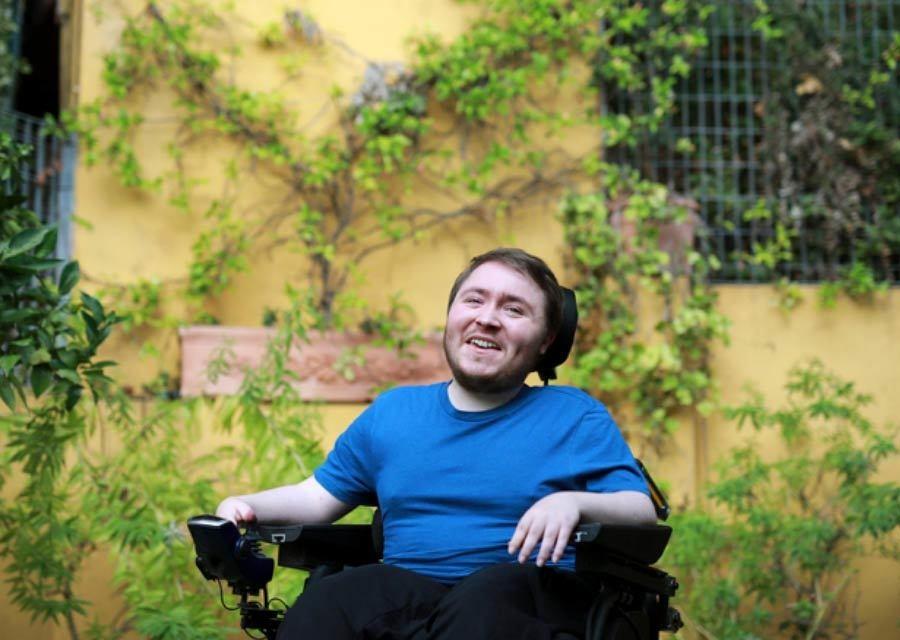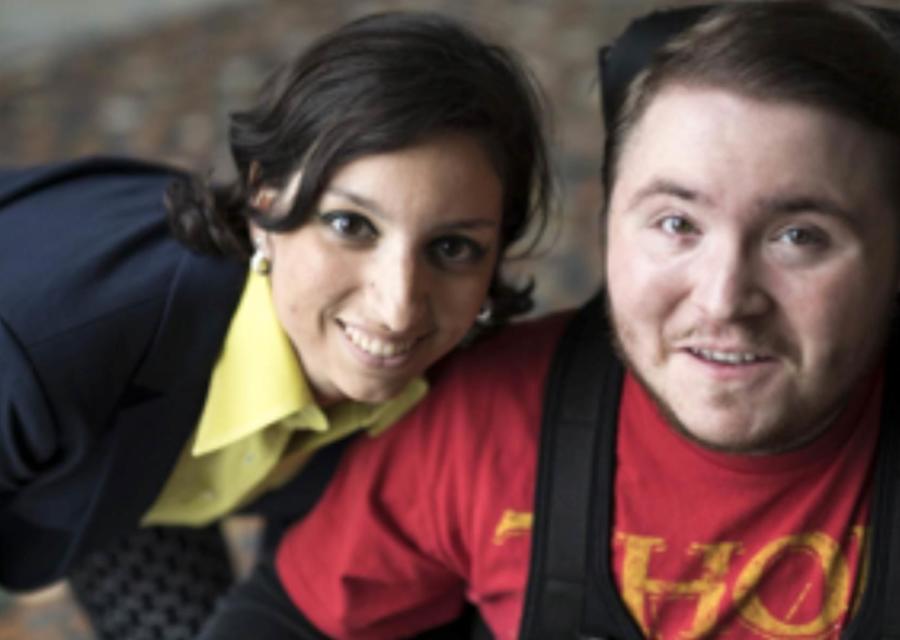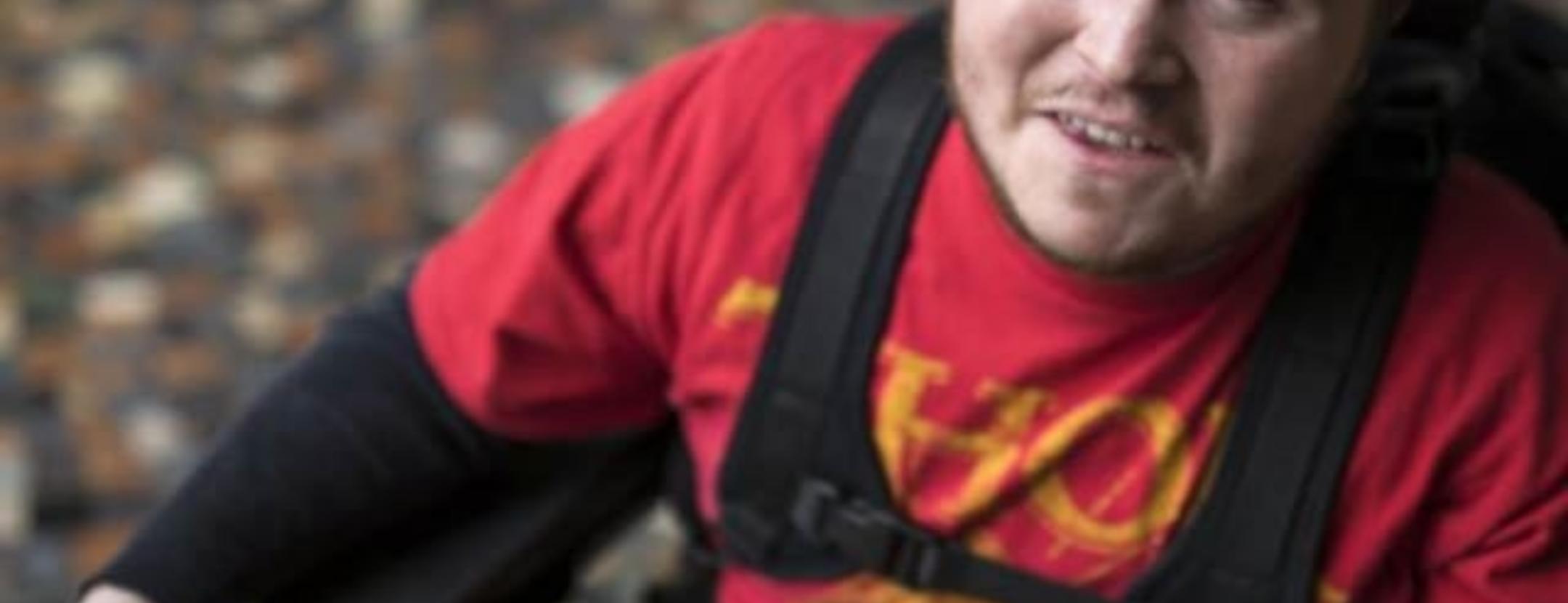The two friends approach the Space Cinema Moderno side-by-side, feet and wheels navigating the thick cracks and broken sections of sidewalk around Piazza della Repubblica. A missing brick or sink in the road is enough to jolt Luca’s head painfully forward. Together they move with care, accepting the deterioration of Rome’s crowded urban centers as part of their city’s mystique and charm. Luca and Corinna discuss their long history of going to the cinema together and how this particular theater stands at a pertinent corner of their lives; as two young cinephiles, espousing film critics, and dear friends.
“This is where I attended my first screening as a critic,” recalls Luca. “It was that movie with Justin Timberlake. I can’t remember the name.”
“Oh yes,” exclaims Corinna, then pausing to think of the title. “Friends with Benefits. That was it.”
Luca and Corinna have been aspiring film critics since they first met in high school. Luca went on to study Film and Visual Arts at university where he also pursued his passion for writing. The marriage of these two forms suites him well, even though he regards film criticism mostly as a hobby these days. Corinna has followed a similar path, staying active as a writer, and now works at the news desk at one of Rome’s daily newspapers. While both have different careers at the moment, cinema is their conjoining passion, and the seed that sprouted their blossoming friendship.
“He remembers better than I do,” admits Corinna. “He remembers what we said the first time we met.”
Luca holds an almost eidetic memory about the early days of their friendship. He was a junior in high school, talking with a classmate about the new Pirates of the Caribbean sequel. “She overheard me talking about the movie, and jumped into the conversation,” remembers Luca. “We’ve been friends ever since.” Remarkably, ten years have passed—an entire decade of life transitions—and still their friendship is as strong as ever. Corinna extending the hand towards friendship was an entirely new experience for Luca.
“I will never have a completely normal life, but I have managed to find my own balance. Independence is more than being able to move myself, or to do things myself. Independence is about finding a way to not always ask for help; to have a stable job; something to do everyday; something to look forward to.”


“Back in high school, I almost renounced the idea of having friends; of being able to have meaningful relationships with someone other than my family,” says Luca. He spent much of high school feeling left out and unable to form bonds with classmates. As a young man with Duchenne Muscular Dystrophy, Luca had transitioned from being able-bodied to a wheelchair user. “It was the moment all the other kids my age starting to become independent; starting to go around on their own; even go on vacation together. As someone with Duchenne, it was the exact opposite. I was becoming more dependent on others.” What became clear as he got older was that the world was relegating him to the classification of “disabled,” a label that held a status both diminutive and exceptional. “It's a time you start to think maybe I will never be like the others.”
Making a true friend started to change all of that. “It's something that really changed the way that I live my life.” Corinna showed no fear when it came to spending time together. In fact, she approached Luca with genuine enthusiasm. “She never perceived me as a disabled person,” recalls Luca. Corinna showed up where no one had before. “He told me what to do when we went out alone,” remembers Corinna. “He told me all the practical stuff. He was very clear.” She was quick to learn how to assist Luca, to alleviate small encumbrances and peel back the social stigma that Luca experienced on a daily basis. Corinna began introducing other significant people in her life to Luca. Often, it wasn’t until right before meeting Luca that she would remember to tell her other friends that he used a wheelchair or that he didn’t have the ability to lift his arms. “Honestly, I forgot to tell them that he was different in any way,” Corinna admits. She instructed others not to worry and just act normal. “He likes it when you shake his hand, so just take his hand and lift it because he can’t on his own.”
In response to being treated better by his peers, Luca became more proactive as an advocate for himself, taking charge of situations that made him bereft in the past, and fighting against the tendency to become immured in the identity of a “disabled” person. Each year, his high school class would take a trip together, which Luca was routinely excluded from because the places the school chose were not accessible. “I decided to propose my own trip,” says Luca. “And my class decided to do it.” Luca chose to visit the tiny town in Abruzzo where his father, Filippo, was born and still owned a family cottage. “My father came with us to help me dress and go to bed, apart from that, I was independent for most of this trip.” With proper support, Luca was able to fully enjoy the week-long trip, exploring the village and sampling local cuisine. Most paramount, the experience helped Luca deepen his social connections. “It was a good way to make the relationships stronger with all my friends, and get to know new people.”
Taking steps like this helped build the confidence and inner-resiliency that has stuck with Luca til this day. “I will never have a completely normal life, but I think I have managed to find my own balance. To know that independence is more than being able to move myself, or to do things myself. Independence is about finding a way to not always ask for help; to have a stable job; something to do everyday; something to look forward to.” As an adult Luca has continued this trajectory, finding meaning in his work.
Writing and creative work are central to Luca’s identity. He talks about his upcoming production, I Tre Moschettieri: Venti Chili Dopo (The Three Musketeers: Twenty Kilos Later). The play is a comedic parody of Dumas' The Three Musketeers: Twenty Years After, the sequel to the original, epic story. Writing the play and seeing it through production is a collective effort, and Luca shares the duty of crafting an entertaining script.
The operatic satire is slated to premier in Rome this winter, right before Christmas as a fundraiser for the Duchenne Parent Project in Italy. “Each year we find a different theater in Rome,” says Luca. “It's one of our most important fundraising events. It’s a lot of hard work, but it’s worth it.” Luca will be helping coach actors and actresses to get each line right in the hopes of getting the all-volunteer cast on-cue. “It's not exactly Broadway,” he chides. “Our actors are not professionals.”
The event is part of a winter fundraising push for the patient advocacy organization, which serves families across Italy affected by Becker and Duchenne Muscular Dystrophy. Luca has been connected with the organization since he was young, as his parents were instrumental in founding the Italian chapter in response to Luca’s diagnosis in 1996.
For income, Luca works as a translator, from Italian to English. It is a job he enjoys and is able to work from home, allowing him to get the regular assistance he needs during the day. “Recently, I stopped typing, but I'm using a dictation program,” he says. The use of this verbal software is key to Luca's career. While he still can use a computer mouse well enough, typing is no longer possible, and in general, motor functions have been declining as his condition advances.
One of the most fulfilling aspects of working as a translator is his main client—Disney. It’s Luca’s responsibility to regularly translate all of their press releases. “It's mostly about movie releases coming up in Italy,” he explains. “The [translations] get sent to all the newspapers and published online.” He was elated when Disney bought the Star Wars enterprise. “Since I was little, I’ve always loved Star Wars,” says Luca. Doing press for the Italian releases was a pivotal moment in his career. “It was like: I made it!”
Star Wars was also one bonding element between him and Corinna. Not long after their initial Pirates of the Caribbean conversation, Luca and Corinna really connected on Star Wars. “We were not the generation that got to see the movies in theaters,” says Corinna. “But the films were very important to us. They were part of our collective imagination about everything to do with movies.” She even helped Luca edit his bachelor’s thesis on the sci-fi productions.
Luca’s translation work, as well as new Lucasfilm releases in recent years have been a source of excitement for both friends. Corinna takes time out of her busy schedule; a full-time job, a boyfriend; a house to take care of; to see Luca. There is a placid balance between the two, even as seeing each other takes more effort these days. “We spent every day together in high school,” says Corinna. “Now, I’m very busy.”
Luca remains thoroughly occupied as well, turning in new translations for work every week, updating Rosebuddies his online movie magazine, and spending time with family. He also does almost daily physical and respiratory therapy to fight the adverse symptoms of Duchenne—the inevitable loss of muscle mass and lung strength. Regardless of all these complications as well as life’s diverging roads, Corinna and Luca are in it for the long haul. “The very important thing for me is that I don't think that our friendship is lost if we don't see each other often,” says Luca, smiling towards his companion. “With other people, you maybe fear that if you don't see them for a month, that the other person doesn't think about you. I know that we will be friends all of our lives.”



